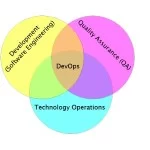A Docker Maven Plugin for Integration Testing
What is Docker?
Docker is the buzzword that is taking the DevOps world. If you don’t know yet what is Docker, be warned, you will find yourself using it one way or another very soon. The rest of this post assumes some basic understanding of Docker, but if you are not familiar with it now, I’m sure you will come back later and read this.
Docker is ideal for integration testing, complex demos of distributed systems or even running production systems. It is an open source software container. You can imagine it as a very lightweight and ultra fast virtual machine.
An example
Inspired by the “Integration testing with Maven and Docker” article and using Docker Java API I’ve created a simple Docker Maven Plugin that can manage Docker containers. Given a Docker image, the plugin will create a container from it and start it as part of maven build process and stop and remove the container when the build process is finished. If the image is not available locally it will pull it down from the public Docker registry before creating a container from it.
The following integration test in Apache Camel is ignored because it requires a running Redis instance:
01 02 03 04 05 06 07 08 09 10 11 12 13 14 15 16 17 18 19 20 21 22 23 24 25 26 27 28 29 30 31 32 33 34 35 36 37 38 39 40 41 42 43 44 45 | package org.apache.camel.component.redis;import org.apache.camel.impl.JndiRegistry;import org.junit.Ignore;import org.junit.Test;import org.springframework.data.redis.connection.jedis.JedisConnectionFactory;import org.springframework.data.redis.core.RedisTemplate;@Ignorepublic class RedisProducerIntegrationTest extends RedisTestSupport { private static final JedisConnectionFactory CONNECTION_FACTORY = new JedisConnectionFactory(); static { CONNECTION_FACTORY.afterPropertiesSet(); } @Override protected JndiRegistry createRegistry() throws Exception { JndiRegistry registry = super.createRegistry(); redisTemplate = new RedisTemplate(); redisTemplate.setConnectionFactory(CONNECTION_FACTORY); redisTemplate.afterPropertiesSet(); registry.bind("redisTemplate", redisTemplate); return registry; } @Test public void shouldSetAString() throws Exception { sendHeaders( RedisConstants.COMMAND, "SET", RedisConstants.KEY, "key1", RedisConstants.VALUE, "value"); assertEquals("value", redisTemplate.opsForValue().get("key1")); } @Test public void shouldGetAString() throws Exception { redisTemplate.opsForValue().set("key2", "value"); Object result = sendHeaders(RedisConstants.KEY, "key2", RedisConstants.COMMAND, "GET"); assertEquals("value", result); }} |
To make it pass, we can use docker-maven-plugin with a Redis image and 6379 port accessible for the test:
01 02 03 04 05 06 07 08 09 10 11 12 13 14 15 16 17 18 19 20 21 22 23 24 25 26 27 28 29 30 31 32 33 34 35 36 37 38 39 40 41 42 | <plugin> <groupId>com.ofbizian</groupId> <artifactId>docker-maven-plugin</artifactId> <version>1.0.0</version> <configuration> <images> <image> <name>dockerfile/redis</name> <hostConfig> <![CDATA[ { "PortBindings": { "6379/tcp": [ { "HostIp": "0.0.0.0", "HostPort": "6379" } ] } } ]]> </hostConfig> </image> </images> </configuration> <executions> <execution> <id>start-docker</id> <phase>pre-integration-test</phase> <goals> <goal>start</goal> </goals> </execution> <execution> <id>stop-docker</id> <phase>post-integration-test</phase> <goals> <goal>stop</goal> </goals> </execution> </executions></plugin> |
The plugin will start a Docker container at compile phase that has a running Redis instance and shut it down at post-integration-test phase.
This is a very simple example, but the plugin can support more advanced scenarios with multiple images configured differently and started/stopped at different phases. Enjoy.
| Reference: | A Docker Maven Plugin for Integration Testing from our JCG partner Bilgin Ibryam at the OFBIZian blog. |








